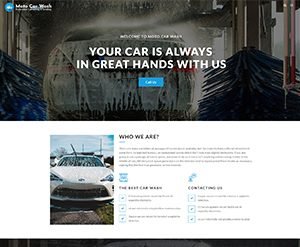A common problem across all aspects of digital marketing is that of keeping the peace between developers and SEO work.
Whether you’re in-house or agency side it can sometimes be a struggle to relay information, get yourself heard and to get things implemented. This isn’t restricted to the SEO and Developer doing the work, but can often be the cause of friction all the way to the top of the company.
If you want your recommendations to be worked on and to get the full benefits from the work, you will need to help each other out. Rather than just being polite, gaining knowledge of each other’s reasoning is essential. With this in mind here are a few points to help you build a fruitful relationship.
Quantify Benefits
When opportunities are identified it is no good just making a request without explanation. If you want a certain change to be made then it should at least be backed up with the theory behind it.
If possible it’s also good to include any helpful data from past interactions or projections. This links back into UX and how the current site is used, so it is also a good idea to gather as much information as possible from the start – like event tracking in Google Tag Manager.
The explanation and benefits should include the following points:
Problem
Reasoning
Solution(s)
Benefits
Once these are outlined and explained you will have a much better chance of getting changes implemented and gaining the time of developers.
Propose Solutions, But Don’t Be Rigid
No-one likes being told that they are wrong, or their work has been done wrong. Rather than being blunt in this manner it is good to frame potential solutions from the outset. This being said, your choice of solution might not be the best route for the Developer, so take time to frame the issue and make sure that everyone knows the intended end results.
This can often require extra work compared to knee-jerk reactions, but it will save time in the long run and allow for a continued good relationship.
Explain what you’ve looked at and what you can do, but then be clear where your skill set ends and the developers skills are needed.
You may propose something only to be countered with an easier or more accessible solution, so make sure you are open to this as well. Don’t get stuck in one way of working if a better solution appears.
Fixing Bugs
Whilst fixing bugs is a wide-reaching term, it can be more beneficial to discuss tasks as bug fixes rather than adding in functionality.
Developers will have worked to a rigid set of features and designs for a website and if you come along and demand X, Y and Z it will likely fall on deaf ears from Developers and Management. Rather than this you can frame certain issues as bug fixing which can fit within the original remit.
This won’t apply to all issues, but issues with compatibility, readability, page speeds and server responses can often be put in this way.
Help Increase Exposure
This shouldn’t just be an SEO goal, but it should be one for all involved in the site. As an SEO your goal is to get in front of more users, but this carries across all channels and disciplines.
Hopefully it isn’t a matter of ‘going through the motions’, so improvements to the website should carry the same enthusiasm across the board. It might be a difficult subject to talk about, but it is definitely worth mentioning that it is in everyone’s best interest to get more traffic to the website.
Keep Each Other’s Work In Mind
Carrying on from the point on proposing solutions, make sure that you aren’t negative about the site and its aspects as this is a sure-fire way make sure your voice isn’t listened to.
This can go from top level opinions of the website through to your wording on requests. Rather than saying the site is a garbage fire try to have some tact!
If you request a change you’re more likely to get it actioned if you word it as “improving current performance” rather than “fixing what doesn’t work”.
You can easily see how you feel about the requests by reading them back and imagining you got the email, or simply run it past another member of your team.
Keep Your Working Methods Fluid
No-one works the same and even when 5 people are using the same software there will be quirks and efficiencies to take into account.
This is no different when working with Developers and anyone else outside your team for that matter. With numerous management systems doing very similar things it is worthwhile to stay agile and meet in the middle where possible.
With Development consisting of many more integrated systems than SEO is, you will invariably need to cater to Developers rather than Devs changing their whole processes for one SEO recommendation! Make sure that you keep this in mind when asking for Developers to learn one extra program or when weighing up the work involved.
By all means recommend systems if they aren’t used, but the chances are that the Developers working environment will be fully implemented and less open to change.
Summary
Most of the above can probably be summed up in the adage “don’t be a dick”, but making sure you are aware of the constraints, working practices and day-to-day of each party involved is key to a good working relationship.
The post How To Make Your SEO And Web Developers Work Better Together appeared first on Koozai.com







